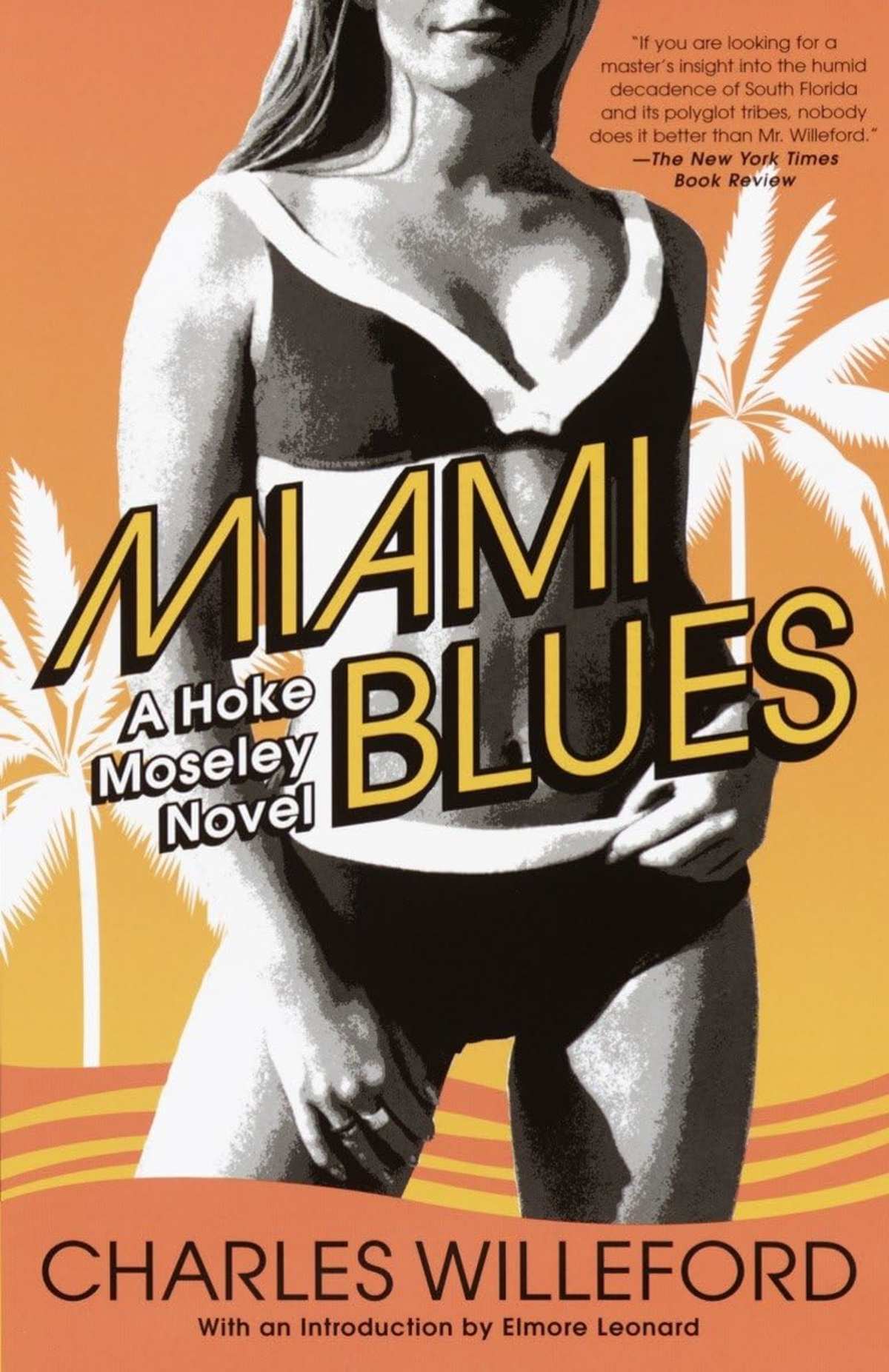Hoke Moseley is old school, hard-boiled and hard-wired to distrust change but his Miami world of the late 80's is changing fast.
'It used to be a lot different when Hoke was still married. Four or five couples would get together for a barbecue and some beer. Then, after they ate, the women would all sit in the living room and talk about how difficult their deliveries had been, and the men would sit in the kitchen and play poker ... That had been real Florida living, but now all the white families were moving away. There were six different detectives Hoke had known who had left Miami in the last year alone.
Hoke looked out at the river, never the same river. He wanted another shot of Early Times, but not at these prices. Hoke left the bar and got his car from the parking ramp... the smell of vomit on the back seat was almost overpowering. When he got to the Eldorado Hotel, he'd get one of the Marielitos who lived there to clean it out.'
The 'Marielitos' embody all that has gone wrong in Hoke's mid-life American Nightmare.
'Our wimpy ex-President, Jimmy Carter, opened his arms to 125,000 Cubans back in 1980... but Castro also opened his prisons and insane asylums and sent along another 25,000 hardcore criminals, gays and maniacs. They sailed from Mariel, in Cuba, so they call them Marielitos.'
Hoke's detective badge and gun are the bulwark against the inevitable fall of civilization as he knows it, his own personal hard headed power amplified by his status as a Miami Homicide Detective. When he falls, beaten to a pulp, badge and gun stolen, it isn't at the hands of a 'Marielito' but to the very white, very American Freddy Frenger Junior - the grotesquely muscled psychopath recently released from San Quentin, intent on pillaging his way to as much cash and high living as he could manage before he would be incarcerated again.
In his own way, Junior Frenger sustains his own American Dream just as Hoke's has become tattered and obsolete. Junior is ambitious and will do whatever it takes to reach his goals. He believes that if he really, really, really wants something, all he has to do is go and take it - usually by breaking bones, smashing heads or pumping bullets into a human obstacle.
Not that Hoke is in any way a pacifist or shy of applying muscle when he deems fit, but Hoke's code of honor, such as it is, is predicated on his sense of selfless service - he doesn't take bribes, he pays his tab at Irish Mike's bar (reluctantly, and only when Mike demands it), and is loyal to his colleagues, even though he avoids their company.
The concept of a hard-bitten, weary cop isn't new, and wasn't new when Willeford created Hoke Moseley, but Moseley stands out as a singular example of the genre. A willing product of his casually racist, misogynistic, macho culture, and honed in the crucible of police dept siege mentality, Hoke Moseley exists on the margins where the sun rising on civil society tomorrow can't be assumed, where the threat of malicious injury or death is always real, and where, even if you fear 'others' as a collective abstract threat, your killer may very well look just like you.
'Hoke went to the desk and poured an overflowing jigger of Early Times into his tooth glass. Too much. He poured part of it back into the bottle. His hands shook a little, and he spilled part of his drink. He could hear his heart beat. The more he thought of Mendez, the more afraid he was. This was not paranoia. When a man has beaten you badly and you know that he can do it again, a wholesome fear is a sign of intelligence.'
